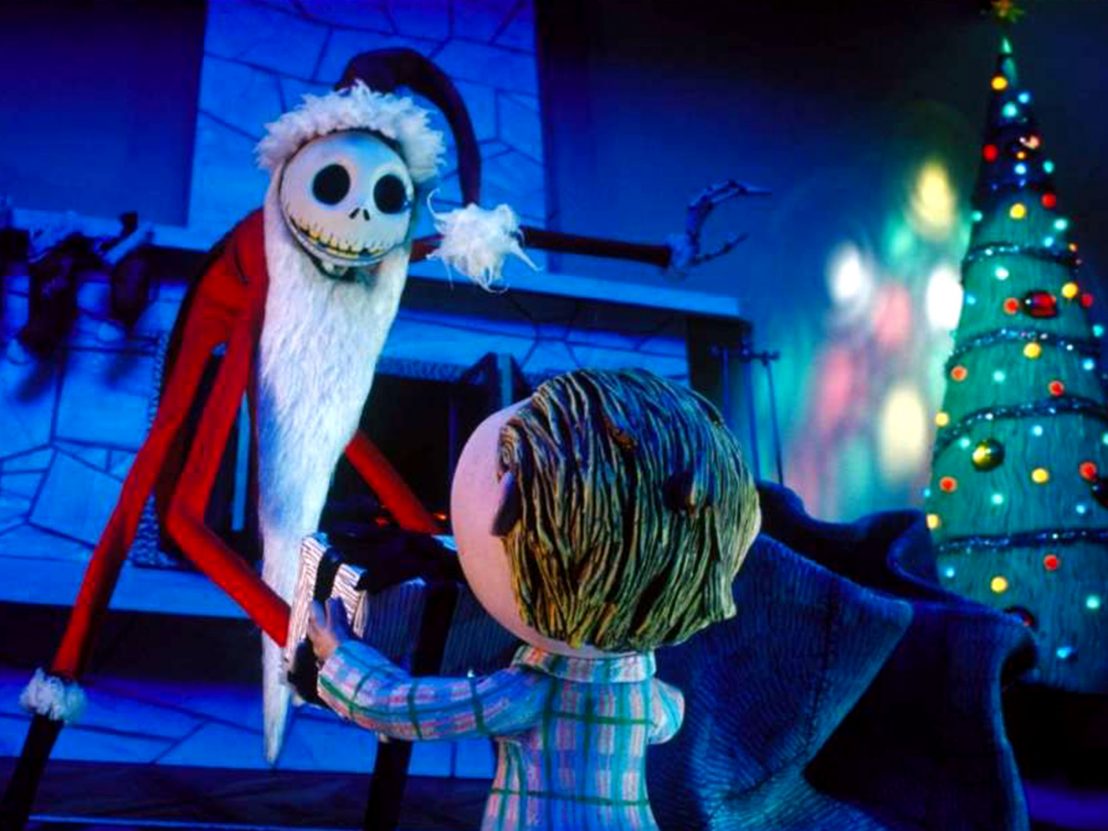
The composer reflects on how this seasonal favourite transformed his life and career.
Danny Elfman was never a fan of Christmas. Growing up Jewish in a very non-Jewish part of Los Angeles, his Decembers were a far cry from the seasonal fun glimpsed in movies, TV and even his own neighbourhood. Instead, Christmas was a time of isolation and exclusion for this budding musical maestro, and as he grew so did his animosity for all things festive.
Then, in 1993, everything changed. “It’s kind of ironic,” Elfman says. “Christmas was a terrible time for me and I dreaded it coming each year. It was a period of real alienation. I imagined all my friends holding hands around trees, singing songs together lovingly with their families and I would just be looking for something to do. Now here I am associated with it… It’s odd.”
Elfman’s unlikely link to Christmas came via his friend and longtime collaborator Tim Burton. Back in the early ’90s, the Batman director was producing The Nightmare Before Christmas, a dark reworking of ‘Twas The Night Before Christmas’ chronicling Halloweentown hero Jack Skellington’s quest to understand the season of goodwill. Stop-motion master Henry Selick was tasked with bringing Burton’s story to life through a mammoth animation process that would ultimately break new ground – but it was the Elfman’s earworm soundtrack that elevated the film to iconic status.
It’s a success story as unlikely as the composer’s newfound appreciation for Santa, and it was all purely accidental. “The funny thing about Tim and I starting The Nightmare Before Christmas is that neither of us had any idea how to do a musical animated film,” admits Elfman. “When Tim brought me in there was no script, so we started telling the story with songs and the script came afterwards – we did it all backwards, but it made sense to us.”
With a blank canvas to play with, Elfman and Burton fumbled their way through, using regular meetings to track Jack’s journey from Halloweentown to Christmastown and beyond. “Tim would just start telling me the story,” recalls Elfman. “He’d show me all these great drawings and as he would describe the scene I’d start to hear the song. It was really quick and simple. He provided all the imagery I needed to get inspired.”
As the film took shape, so did a collaborative writing process unlike anything Elfman had experienced before. Burton’s creativity seeped into Jack’s words and the pair’s mutual inspirations rose to the surface. “Tim had phrases and lines and they were all really good,” Elfman says. “He’d write things like, ‘Perhaps it’s the head that I found in the lake?’, and I’d be like, ‘Oh, that’s a good one!’, and I’d incorporate it into the song. Our lyrical styles come from somewhere between Edward Gorey and Dr Seuss. We both grew up on the same stuff so it was easy for us to fall into that same rhythm. I wanted the songs to feel like they could have been written in any era. I’ve never written so quickly since.”
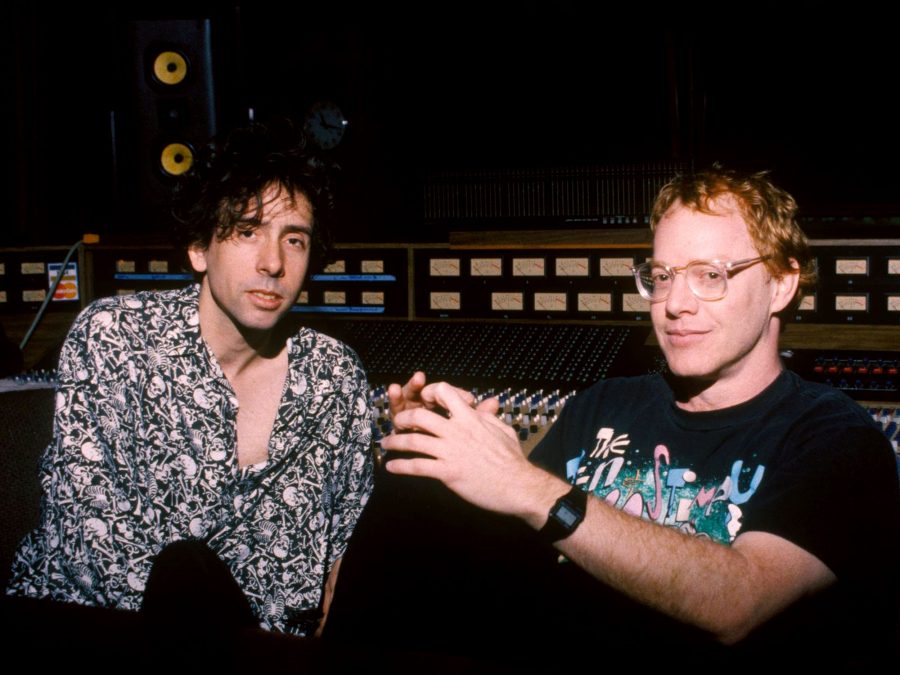
With writing complete, it soon came time to record and hand their work over to Selick’s animation team. At the time, Elfman was living with then-girlfriend and screenwriter Caroline Thompson who, having spent weeks listening to Burton and her boyfriend detail Jack’s plans to steal Christmas, proved an obvious choice for penning the script. “Caroline was listening to all these songs and going crazy. She was like, ‘Hello, I’m right here!’ She was ready to go. I was literally writing in her garage – I made a little makeshift studio in the back of the house, then Tim and I went into a recording studio one night and laid down the voices for all parts apart from Sally.
“After that, I started going up and meeting Henry,” Elfman continues. “I went up every month for about a year-and-a-half and we slowly got a small group of voice actors together and laid down the permanent voices, then I went into the studio with Tim to record my vocals. It’s funny, I’d be recording and Tim would say, ‘Could we just hear the original demo?’ and he’d like that better. There’s a lesson to be learned there which I should have known by then and that’s sometimes you really can’t beat your first take. At least half of Jack’s final vocals came from those first demos.”
By crafting Jack’s dialogue and lending him a singing voice, Elfman felt an unexpected kinship with Burton’s pinstripe hero and his urge to escape. “I totally got Jack,” he reflects. “I was the lead singer for a rock band and I really wanted out but had this sense of responsibility and just couldn’t leave. When you’re the leader of a band it’s like you are The Pumpkin King. You’re the leader of your own little microverse and I totally got his desire of, ‘I’m not happy anymore and I don’t know what I want to do but I need something’. When I was writing for Jack, I was also writing for myself. I was singing him almost semi-autobiographically. I injected a lot of myself in there and it made it more personal.”
The only restriction the duo placed upon themselves was to avoid a contemporary Broadway or Disney musical sound, yet this only added to the studio’s confusion over the finished product. “Disney had an early preview for kids and they just didn’t know what the hell it was,” remembers Elfman. “They were expecting The Little Mermaid and they got The Nightmare Before Christmas – but Tim and I knew that it was fine for kids.”
After a lukewarm initial reception, Burton’s passion project went unnoticed for more than a decade; it wasn’t until a promotional trip to Tokyo for 2005’s Charlie and the Chocolate Factory that the pair became aware of the film’s cult fanbase. “Tim and I would go shopping in Tokyo toy stores and all these characters were everywhere. There was even a club dedicated to The Nightmare Before Christmas. It had not faded away.”
Another clue? Cover song requests from well known artists. “I was like, ‘Marilyn Manson’s covering that? Wow!’,” laughs Elfman. “I once got a call from Korn’s Jonathan Davis who said, ‘You don’t know me but I’m a big fan of The Nightmare Before Christmas and I hear you collect shrunken heads’. He actually turned me on to a collector who I got quite a few objects from.” Not long after that, Disney finally began to embrace the film’s undeniable appeal, welcoming it into The House of Mouse and forever redefining Elfman’s relationship with Christmas.
“Somewhere between Jack Skellington and the Grinch is where you find Danny Elfman as a child,” the composer smiles. “It’s amazing to me. I’ve never worked harder on a movie, so for it to be alive and thriving 25 years later is astounding. How many films get a second life? If I’ve done 105 movies, 60 of them have suffered a similar early demise so If I could pick just one to continue, it would have been this.”
Published 22 Dec 2018
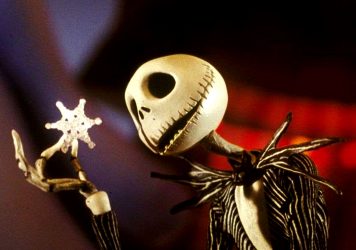
Henry Selick’s directorial debut is a gleefully macabre cinematic marvel.
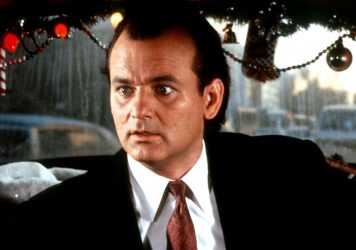
Thirty years ago, Bill Murray’s cruel network executive taught us all the importance of spreading a little seasonal misery.
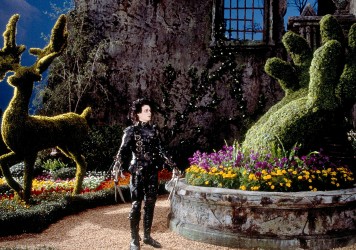
The master of the macabre hit his creative peak with this singular suburban fairy tale from 1990.